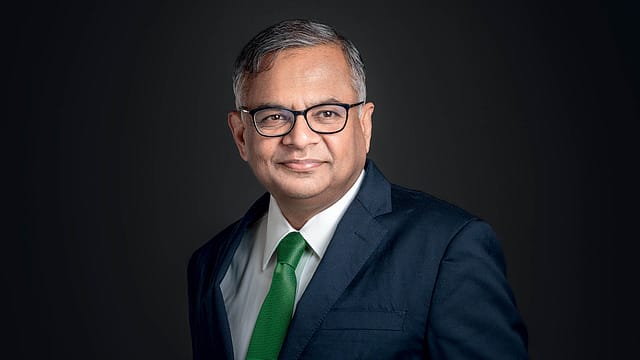Tata Motors demerger to give long-term returns to shareholders: N Chandrasekaran
ADVERTISEMENT

Tata Sons chairman N Chandrasekaran has said that the proposed demerger of Tata Motors will bring greater strategic clarity and agility, enabling a more focused approach to execution and value creation, delivering long-term returns for shareholders.
“The proposed demerger will bring greater strategic clarity and agility, enabling a more focused approach to execution and value creation, delivering superior experiences for customers, rewarding careers for employees, and long-term returns for shareholders,” Chandrasekaran, who is also the chairman of Tata Motors, said in the company’s integrated annual report ahead of its annual general meeting in June.
To empower each business to pursue its distinct vision, the demerger of Tata Motors into two listed entities—commercial vehicles and passenger vehicles (including EV and JLR)—is progressing as planned, said Chandrasekaran.
“Enabling corporate actions to streamline the capital structure of the Company and enhance its operational focus gathered pace during the year with the successful delisting of its DVRs and the merger of Tata Motors Finance with Tata Capital In early FY26, your Company’s shareholders approved the demerger which is expected to be effective during the second half of 2025, with shareholders receiving equivalent shares in both entities,” he said.
“We step into FY26 with confidence in our strategy, strength in our execution, and belief in our people. We remain vigilant to worldwide volatility, including the impact of changes in global trade conditions and the varying degrees of adoption of electric vehicles across different markets and evolving technologies, to accelerate our production plans while delivering value to our customers. I remain confident in the future of our brands and the resilience of our business. Our focus remains on delivering consistent growth, enriching customer experience, and innovating for a cleaner, safer, and more connected mobility future,” said Chandrasekaran.
January 2026
Netflix, which has been in India for a decade, has successfully struck a balance between high-class premium content and pricing that attracts a range of customers. Find out how the U.S. streaming giant evolved in India, plus an exclusive interview with CEO Ted Sarandos. Also read about the Best Investments for 2026, and how rising growth and easing inflation will come in handy for finance minister Nirmala Sitharaman as she prepares Budget 2026.
Tata Motors’ forthcoming demerger marks a pivotal transformation: forming two independent, publicly listed companies — one dedicated to personal mobility, including passenger vehicles and Jaguar Land Rover, and the other focused on commercial mobility solutions.
In March 2024, Tata Motors’ board approved the proposal of demerger of the automaker into two separate listed companies – one housing its commercial vehicles business and the other its passenger vehicles businesses including electric vehicles (EV) and British marque Jaguar Land Rover (JLR). The demerger will be implemented through an NCLT (National Company Law Tribunal) scheme of arrangement and all shareholders of Tata Motors will continue to have the identical shareholding in both the listed entities.
Over the past few years, the commercial vehicles (CV), passenger vehicles (PV+EV), and Jaguar Land Rover (JLR) businesses of Tata Motors have been operating independently under their respective CEOs. The demerger is a logical progression of the subsidiarisation of PV and EV businesses done earlier in 2022, the automaker said last year.
While there are limited synergies between CV and PV businesses, there are considerable synergies to be harnessed across PV, EV and JLR, particularly in the areas of EVs, autonomous vehicles and vehicle software.
